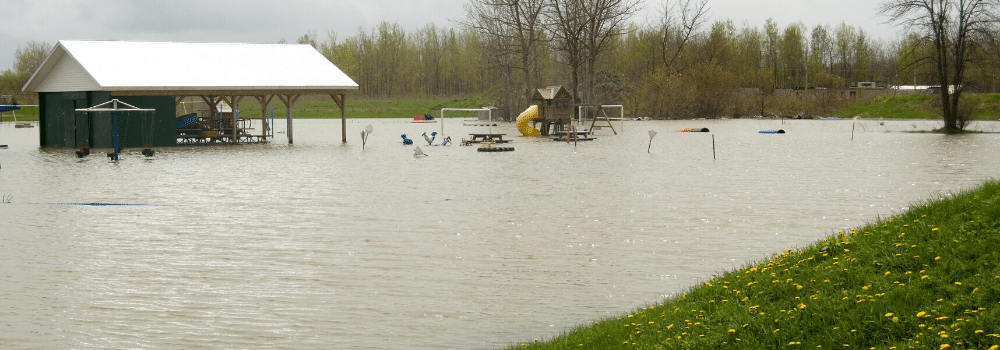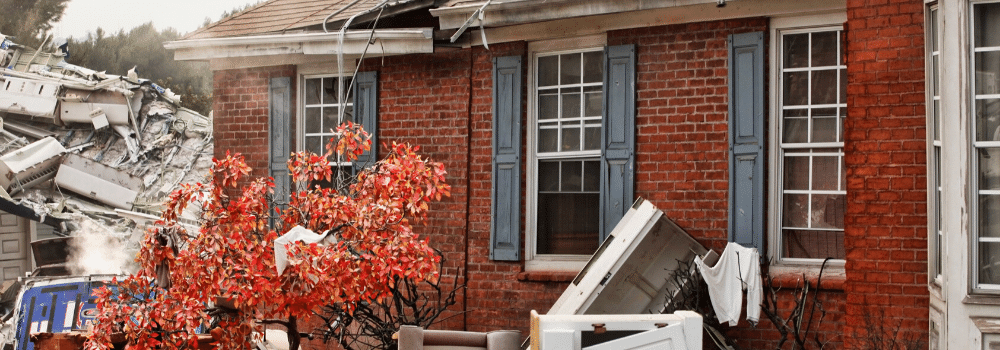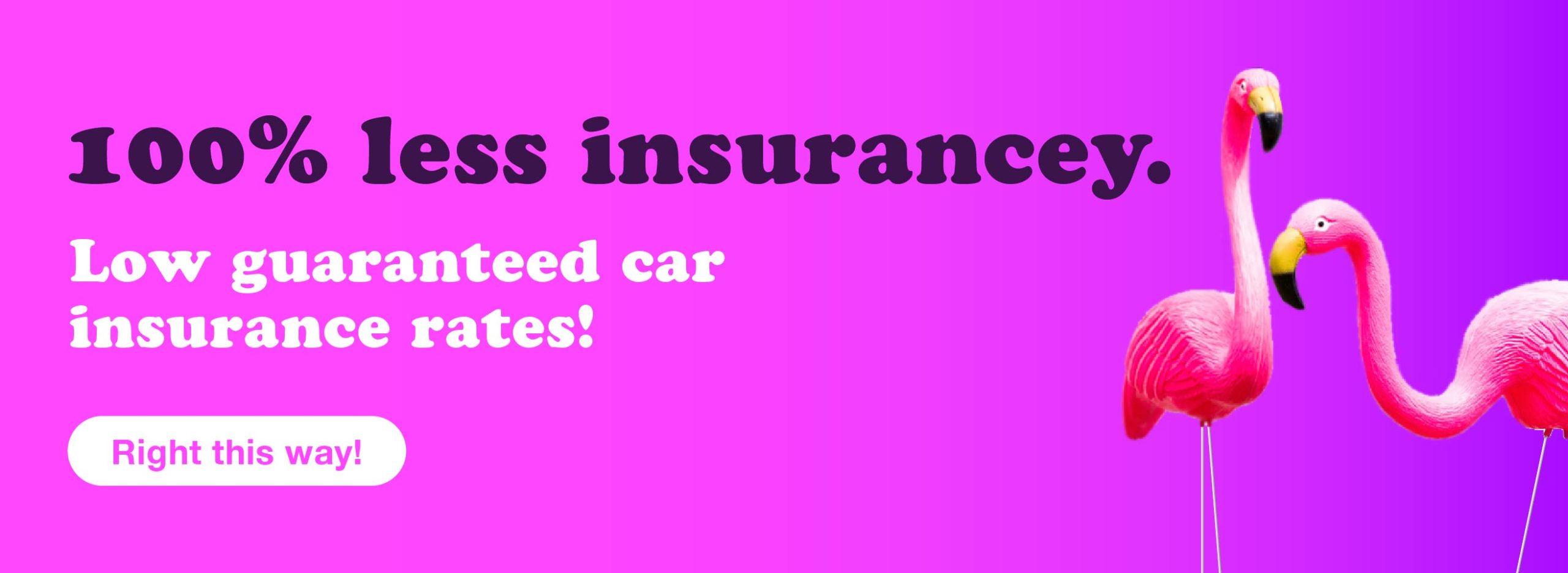Natural disasters in Canada come in all forms, from ice storms in February to flooding in April to wildfires in August—and they can be devastating for your home insurance policy.
We all know that they can cause a hefty amount of damage to homes, properties, vehicles, and a whole lot more, but at what point does insurance cover the cost? With our Canadian climate changing and causing more extreme weather, it’s more important than ever to look over your own natural disaster coverage.
“All told 103 deaths and nearly $3 billion in absolute losses were attributed to extreme weather in Canada in 2018. The Insurance Bureau of Canada reported $1.9 billion in insured losses due to weather in 2018.”
CanadianUnderwriter.ca, January 2020
There’s a lot of misinformation around whether or not insurance companies cover natural disasters, but—in general—Ontario’s insurance industry tends to offer coverage options for extreme weather.
However, a lot of that depends on these factors:
- The type of natural disaster
- Your location
- Your own coverage options
- Your insurance provider
Not all insurance providers have coverage options for every kind of natural disaster, and those that are offered could be limited by location. That’s why it’s imperative that you read your policy closely. Your policy might cover a burst pipe, but not necessarily large-scale damage from a bad storm.
First let’s answer what kind of natural disasters are actually covered here in Canada.

Which natural disasters in Canada are covered by insurance?
Unexpected events—or “perils,” as we call them in the business—can include everything from minor damage to devastating destruction. Does home insurance cover natural disasters? Yes, typical home insurance policies cover any of the following natural disasters in Canada:
These types of extreme weather are usually covered on a home policy, including contents insurance claims for your belongings:
- Wildfires (which helps with home fire insurance claims)
- Ice damage
- Hail storms
- Wind storms
- Tornadoes
- Hurricanes
- Water damage within the home
These types of extreme weather are not usually covered by home insurance:
- Overland flooding (including flash floods)
- Earthquakes
- Landslides
Sometimes coverage for those can sometimes be added as add-ons to your existing policy. However, if your area is at a particularly high risk for the natural disaster in question, the coverage might not be offered through your insurance provider. That’s why it’s important to ask around!
All-risk insurance may also be a shrewd choice of coverage for your home, as it covers a wide range of potential causes of damage.
The premium for add-ons like earthquake and overland flooding insurance tend to be decided based on four factors:
- Where you live: for example, the flat plains in Saskatchewan are known for flooding, and British Columbia experiences seasonal wildfires.
- The age of your home: what would be the cost of repairs if a natural disaster should happen?
- The coverage limit you need: this should be based on your estimate.
The amount of your home insurance deductible: with some insurance providers it may be possible to decrease your deductible by increasing premium payments, but not every provider does it.
Does car insurance cover natural disasters?
If you have comprehensive car insurance then you’re likely covered in the event of a natural disaster. Again, check your policy for specific exclusions, as each policy and provider is different. For example, if a hail storm puts dents in your hood and cracks in your windshield, that’s typically covered. Losing your car in a wildfire isn’t likely covered on a regular car insurance policy, but it would be accounted for under most comprehensive coverage policies.
Does life insurance cover natural disasters?
Yes. Life insurance policies will typically cover all accidental deaths, even if they are caused by natural disasters in Canada. Be sure to check the details of your own policy to confirm your coverage and to what extent.
Keep in mind that it must be accidental in most cases. If you are a wildlife photographer and get caught in the area while documenting a wildfire in British Columbia, that claim could be denied—which would be horrible. Likewise, if you were pursuing a tornado for scientific study, then a claim could be denied on the grounds that it wasn’t accidental.
FAQs for natural disasters and insurance
How do insurance companies pay for natural disasters?
Insurance for natural disasters in Canada typically comes with a higher deductible than other types of insurance. For example, the coverage for wildfire damage may have a $50,000 CAD deductible, however, the average claim for wildfire damage may be $400,000.
How it is paid out also depends on your specific policy and add-ons. You can sometimes decrease your deductible if you’re willing to increase your premiums, but again, consult your insurance specialists (us!) to know your coverage.
What types of natural disaster insurance are there in Canada?
When we talk about natural disaster insurance, we’re typically referring to home insurance coverage. There are four main types of home insurance policies:
- 1. Comprehensive
- 2. Standard
- 3. Broad
- 4. No-Frills
Each provider and policy is different, so you need to review the details to see what is covered by your plan and what would need to be added on. For example, earthquake coverage and flooding coverage could potentially be added on for a cost (more on those below).
What is covered with earthquake insurance?
Earthquake insurance typically has a deductible between 5% and 20% of the total coverage. This is higher than other types of insurance, but that’s because the damage caused by earthquakes can be the most extensive. So you may be paying the first $50,000 on $500,000 of coverage, but your home could require $350,000 worth of repairs. That would still put you $300,000 ahead if disaster strikes.
Damage to land value or damage from tsunamis or tidal waves caused by the initial earthquake are not typically covered. Luckily, Ontario doesn’t have to deal with those directly. We’re fortunate there.

What is covered with flood insurance?
Typical home insurance policies cover sudden and accidental water damage from inside the home, like a burst pipe, but they don’t typically cover water damage from outside (like flooding or sewer backups). Flood insurance is not offered by all companies (rarely at all in Ontario), but can be purchased as optional coverage in certain areas. The premium you pay depends on the level of a flood risk in your area.
There are three types of flood insurance:
- Overland flooding, caused when rivers and lakes overflow their banks due to melt or rainfall.
- Rain-related flooding caused by heavy or on-going rain.
- Flash flooding, caused suddenly by hurricanes and storms.
Are avalanches covered by insurance?
Avalanches are a unique type of natural disaster, but they still claim the lives of 45 people each year in North America. Avalanches are not covered under typical home insurance policies, but sometimes they are covered if you’ve added flood insurance. The damage is more likely to be covered if it has been caused by the weight of ice or snow, like a suddenly, fully collapsed roof.
That’s it for natural disasters, folks!
Still have questions? We’re here to help you understand what kind of coverage is available in your area and what makes sense for you.






